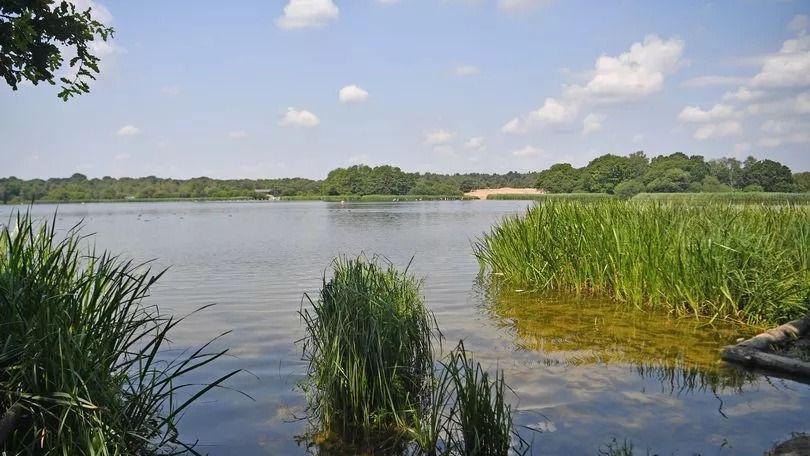Council warns of 'harmful' algal bloom in lake
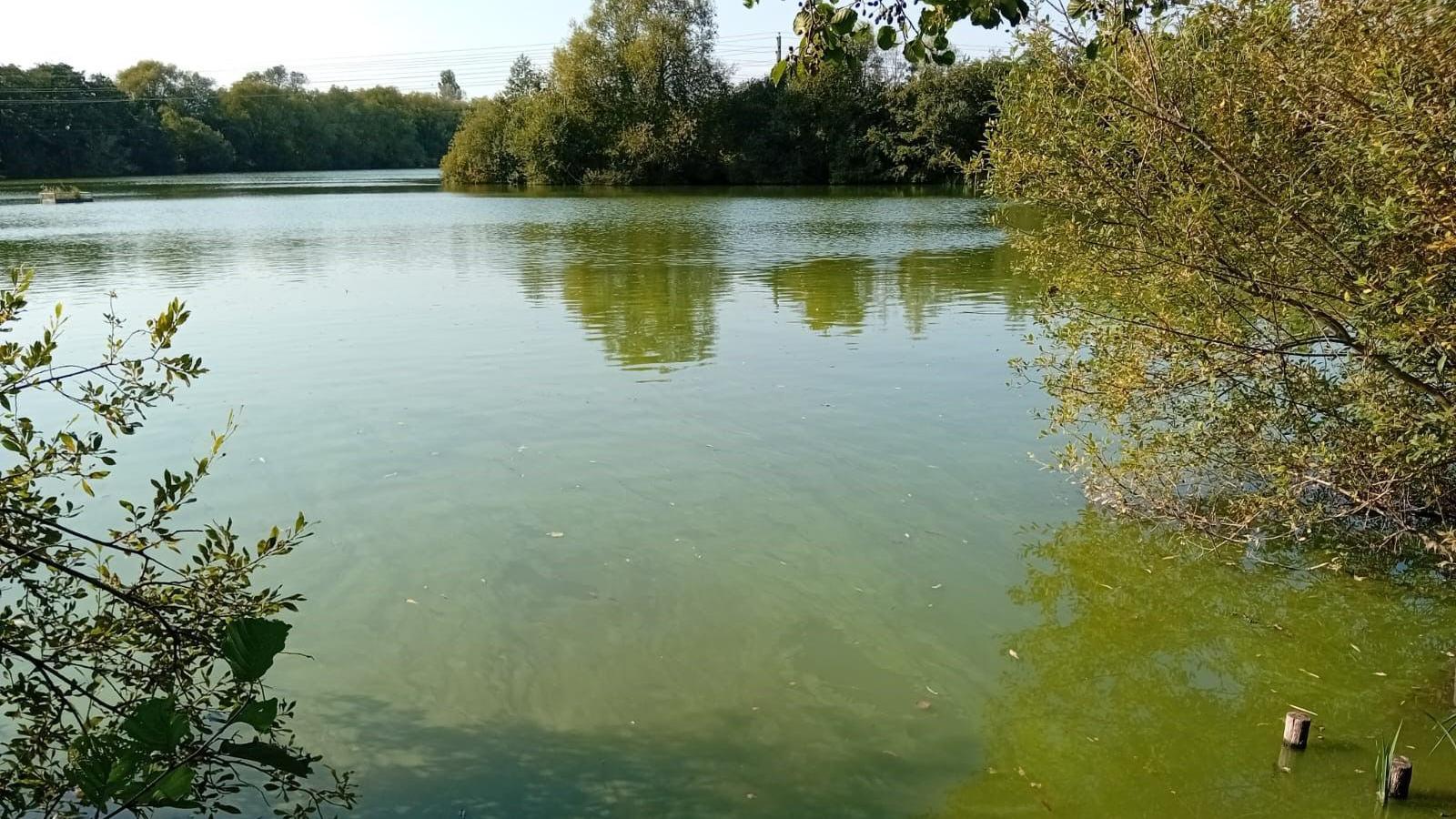
The council said the algal bloom was due to "raised the level of potassium and other contaminants"
- Published
A council has warned that a "harmful" blue-green algae is blooming in a regularly used park.
Witney Town Council said in a social media post that the plant in Duck Lake at Witney Lake and County Park posed "potential health risks to both humans and dogs".
The council said the lake was safe to walk around, but advised residents to "take appropriate precautions" and not allow their pets to swim in or drink the water.
An Environment Agency (EA) spokesperson said it would "continue to liaise with the council until the algae disappears".
Blue green algae, also called cyanobacteria, can form blooms in freshwater lakes that can be highly toxic to humans and animals., external
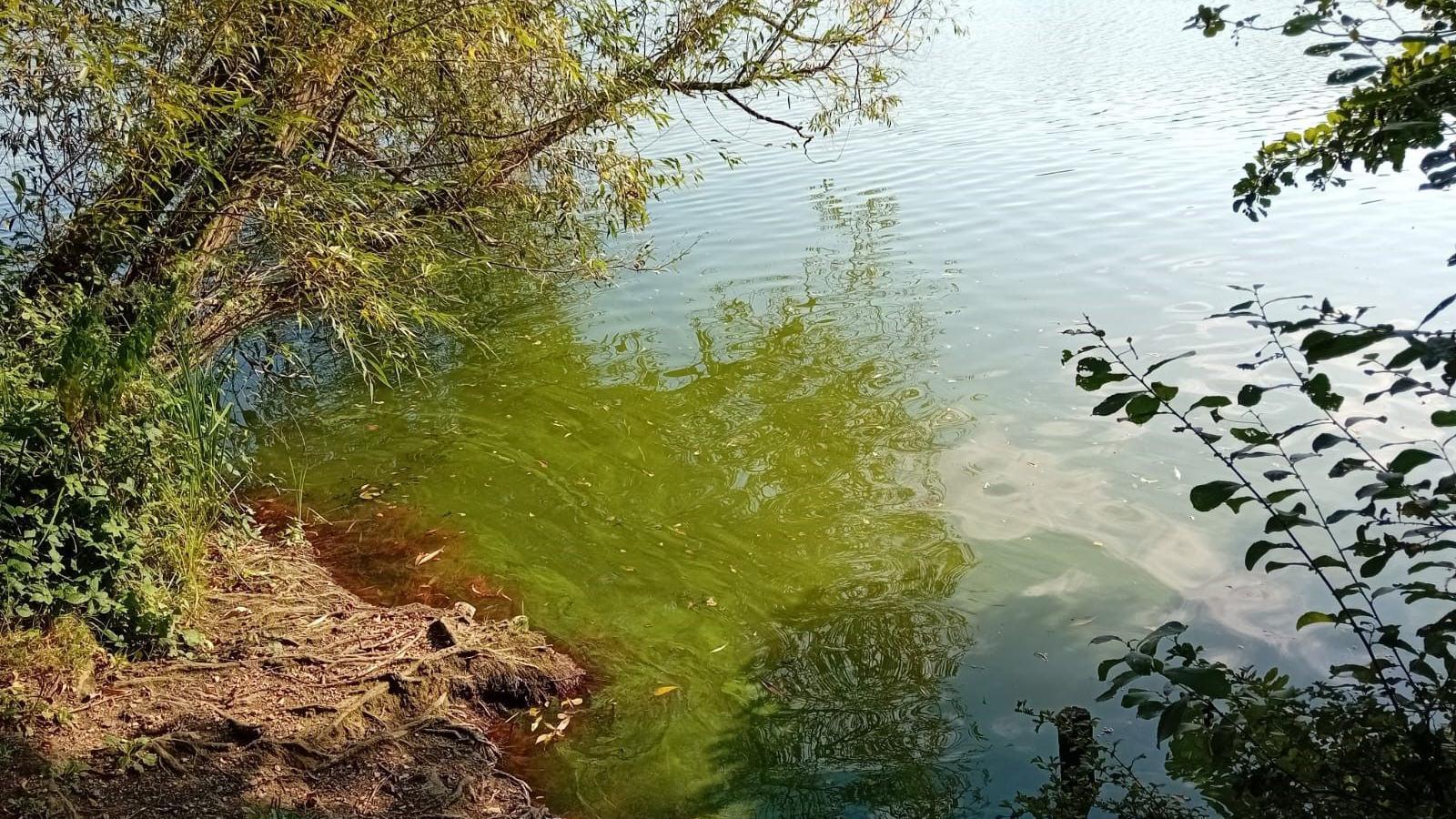
Residents were advised to "take appropriate precautions" and not allow their pets to swim in or drink the water
The council said it discovered what could be an algal bloom on 30 August, and once it was confirmed put up warning signs at all the lakeside noticeboards and online.
The lake had been "inundated for a number of months this year from flood waters from the River Windrush", it said.
"This has raised the level of potassium and other contaminants which has resulted in its current algal bloom.
"This type of algae can pose serious health risks therefore it is important to take the appropriate precautions."
The council said its team was regularly at the lake to make residents aware of the issue.
It added that no residents had been in touch about it but it was "currently liaising" with the EA on "the best action to take".
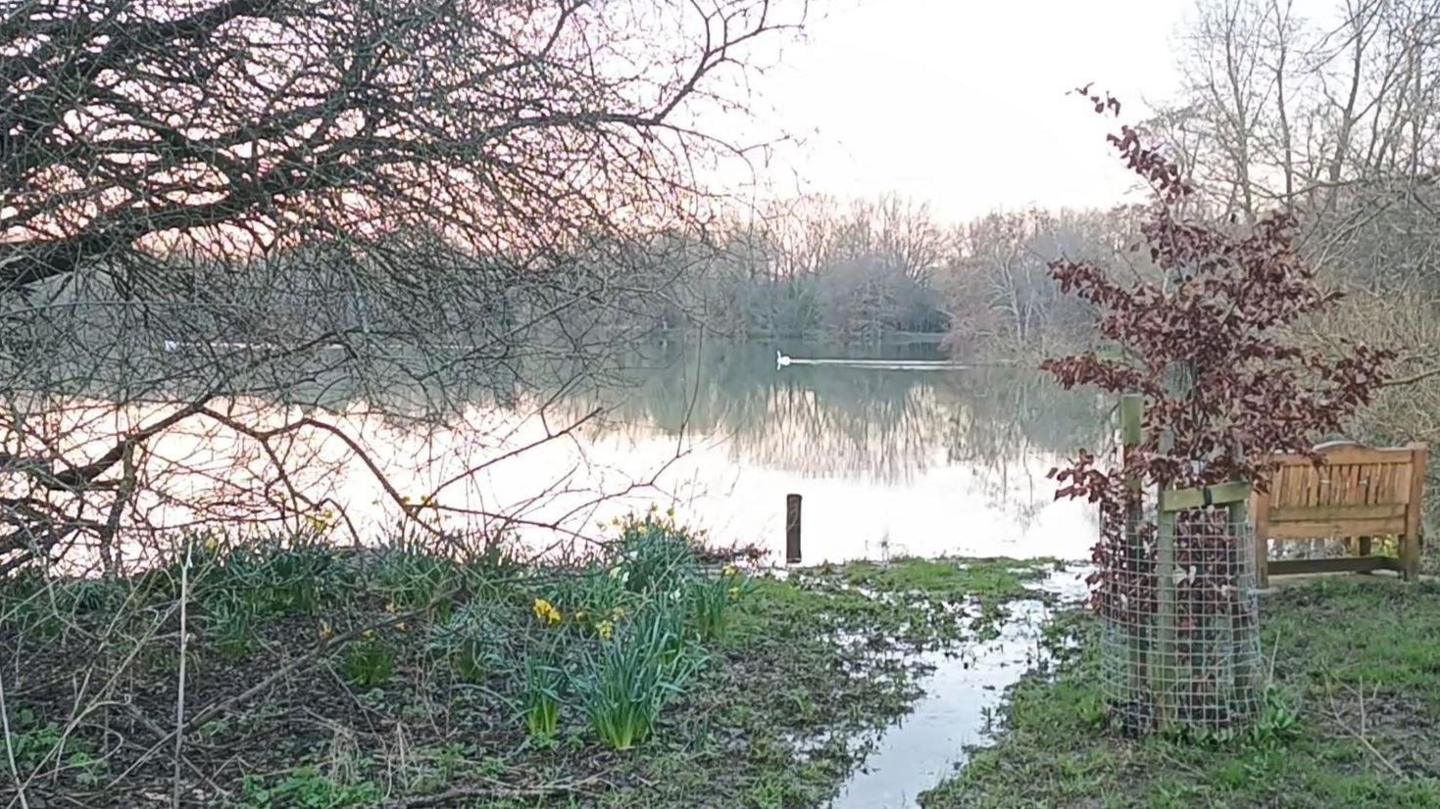
Founder of Windrush Against Sewage Pollution Ashley Smith had recoded the river Windrush flowing into Duck Lake during sewage pollution
Ashley Smith, founder of Windrush Against Sewage Pollution, said the group had recorded the river flowing into the lake in the winter "when there was a lot of sewage pollution going on".
"I predicted then that there would be an algal bloom at some point as a result," he said.
Mr Smith said the algal blooms could "vary enormously" as some types were "benign" while others were "very dangerous".
"I would treat it with extreme caution," he said.
"I think even the algae itself can change in its toxicity throughout its life cycle."
Mr Smith added that there had been a similar case at the nearby Dix Pit a few years ago which resulted in "a massive fish kill".
The EA said its team had "no evidence of pollution or harm to wildlife".
“Our specialist officers took water samples from Witney Lake earlier this week and have since confirmed the presence of naturally-occurring blue-green algae, caused by warmer temperatures," a spokesperson said.
"We’ll continue to liaise with the council until the algae disappears."
Get in touch
Do you have a story BBC Oxfordshire should cover?
You can follow BBC Oxfordshire on Facebook, external, X (Twitter), external, or Instagram, external.
Related topics
- Published6 August 2024

- Published5 August 2024
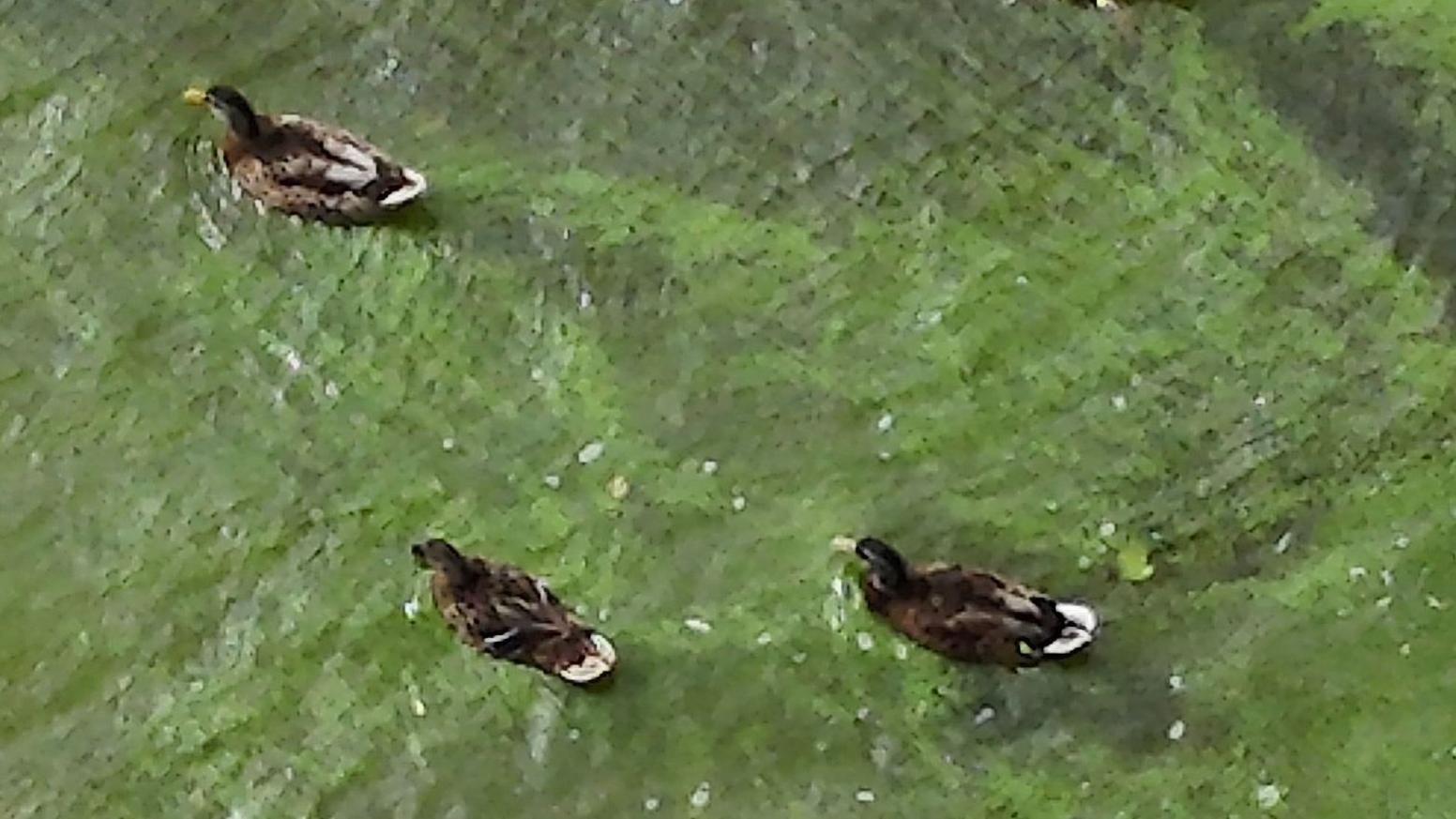
- Published18 July 2024
